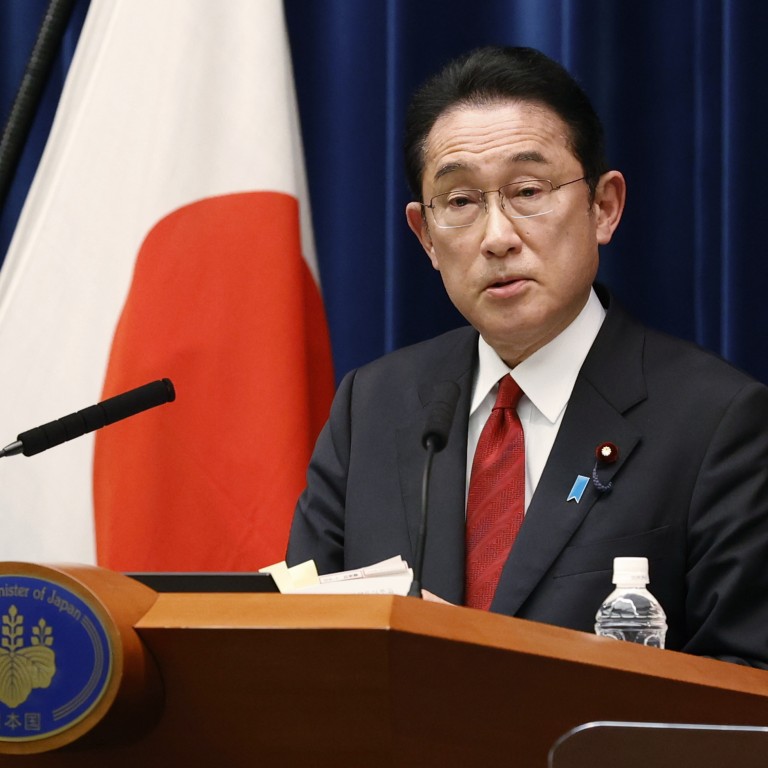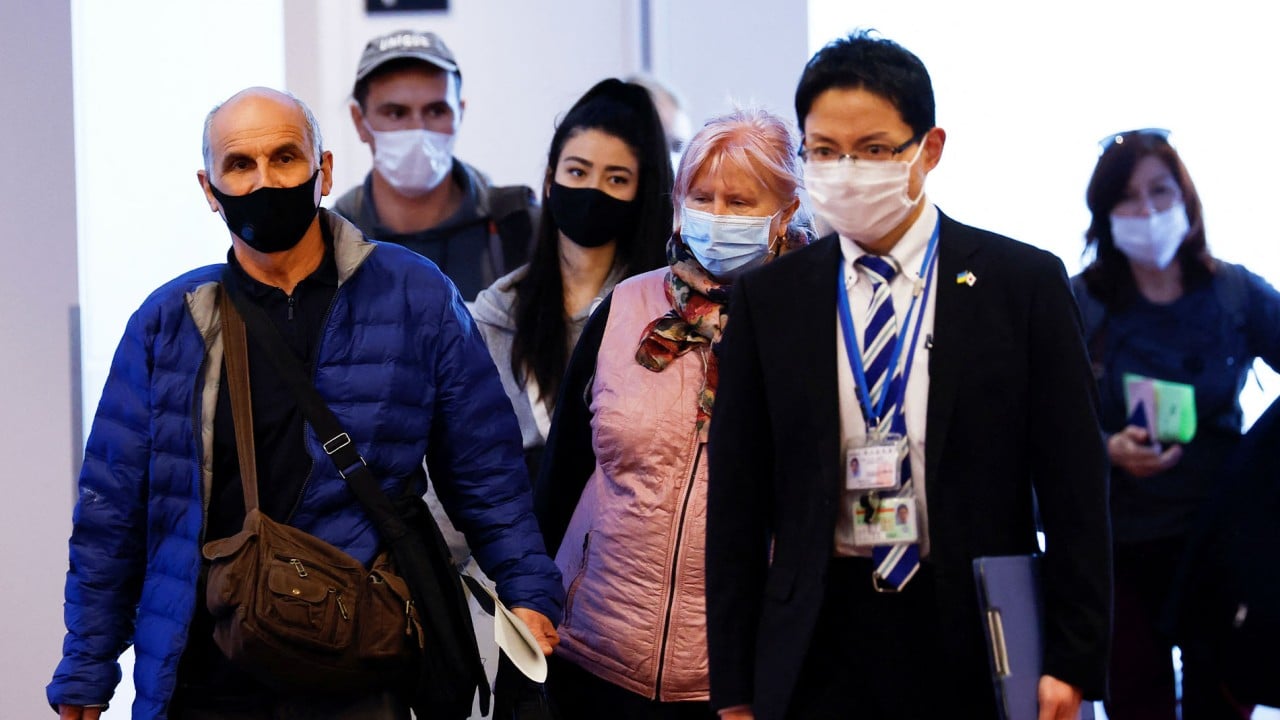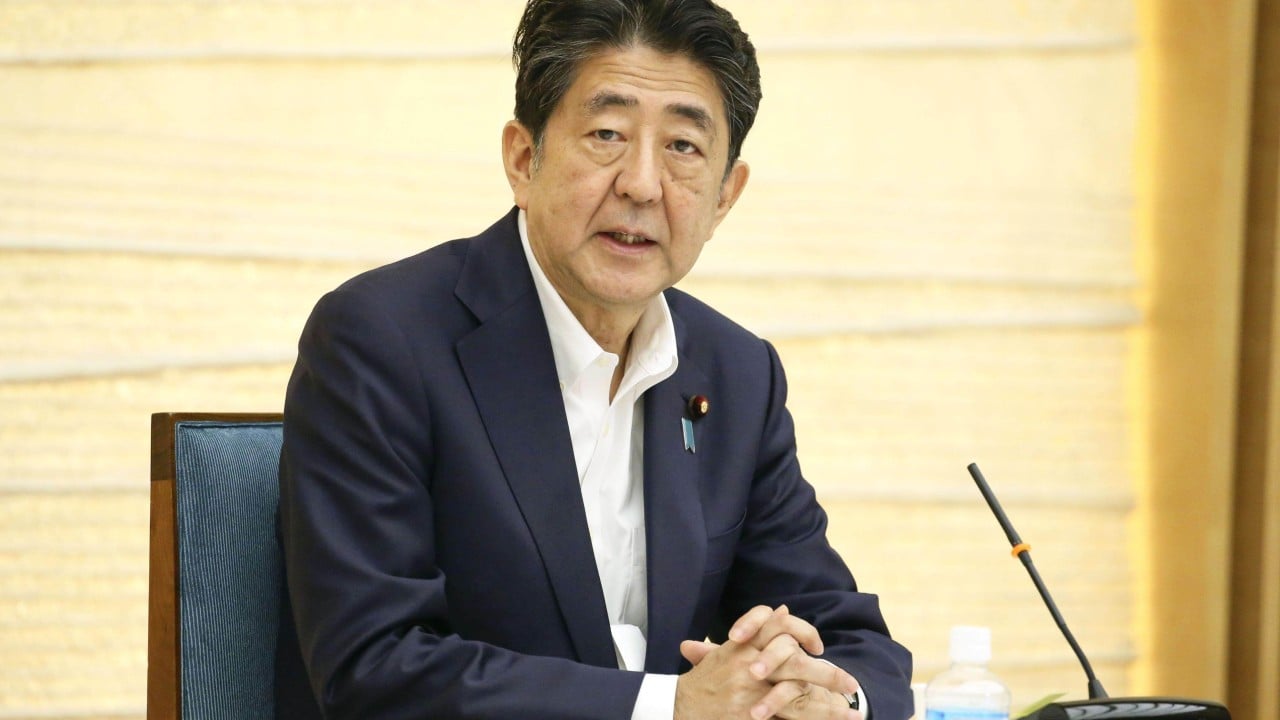
China-Japan relations ‘at a crossroads’, Beijing’s envoy to Tokyo warns
- Obsession with Cold War-style rivalry among reasons fuelling ‘deep ideological prejudice in Japanese public opinion’ towards China, ambassador to Tokyo says
- Addressing virtual seminar on 50 years of ties, Kong Xuanyou urges Japanese businesspeople to help ease bilateral tensions
In a virtual speech to more than 100 Japanese entrepreneurs on Tuesday, Chinese ambassador Kong Xuanyou also indicated Beijing’s frustration with the administration of Prime Minister Fumio Kishida over its close alignment with Washington on China.
The state of bilateral ties was “far from ideal, with prominent issues both old and new intertwined with each other”, Kong told a seminar hosted by the Japan-China Investment Promotion Organisation to mark the 50th anniversary of the normalisation of Sino-Japanese relations.
“We are at a crossroads where we either forge ahead or retreat,” he warned.
High-level bilateral exchanges have largely been suspended, with Kishida talking to Chinese President Xi Jinping only once over the telephone since he took office.
The China-Solomon Islands security pact and why it has raised alarm
Tokyo has also played a pivotal role in Washington’s China-focused Indo-Pacific strategy and the Quad, a US-led four-way grouping with India and Australia slammed by Beijing as an “Asian Nato”.
In his speech, Kong took particular issue with “deep ideological prejudice in Japanese public opinion” towards China and made a veiled swipe at the US.
“There are fewer positive voices promoting cooperation, but more negative views advocating toughness against China. It can be attributed to misunderstanding and misperceptions of China in Japan, but it is to a large extent due to external influences,” he said.
Kong listed three main areas he believed had seen Tokyo move towards an increasingly antagonistic approach on Beijing, namely, how to view their different political systems; how to balance competition and cooperation; and how to assess China’s role in the world.
He dismissed growing criticism, mostly from the West, of China’s self-claimed neutral stand on Russia’s invasion of Ukraine, and lashed out at similar attempts in Japan to compare China and Russia and use the Ukraine crisis to advocate support for Taiwan.
The Chinese foreign ministry has condemned Abe on several occasions over his recent appeals for the US to drop its decades-old strategic ambiguity on the defence of self-ruled Taiwan, which Beijing considers breakaway territory to be reunited by force if necessary.
Beijing was also unhappy with Kishida over sending a ritual offering “in a private capacity” last week to the controversial Yasukuni Shrine, a symbol of Japan’s past militarism. Chinese foreign ministry spokesman Wang Wenbin responded by urging Japanese politicians to reflect on their country’s “wrong attitude toward its own history of aggression” and “take concrete actions to win the trust of its Asian neighbours and the international community.”
This comes as the Ukraine war prompts a shift in Japanese public opinion to favour a stronger military, with 55 per cent of respondents agreeing that national defence spending should be raised to 2 per cent of GDP or more, according to a survey last week by the Nikkei newspaper.
In his speech, Kong also appealed to Japanese businesspeople to help ease the bilateral tensions, describing mutual trade ties as “interdependent and inseparable”.
According to Kong, there are over 30,000 Japanese companies operating in China, with a total investment of more than US$120 billion. Sino-Japanese trade volume accounts for nearly a quarter of Japan’s total foreign trade, about the same as its combined trade volume with the US and European Union.




